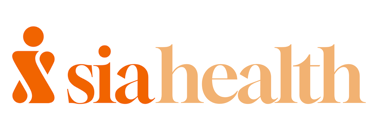
How Fitness Can Transform PCOS: A Complete Guide to Movement & Hormonal Balance
FITNESSPCOSINSULIN SENSITIVITY
Karishma Dhamija
6/11/20253 min read
Understanding the Root Cause
At its core, PCOS is a hormonal imbalance, often involving:
Elevated insulin levels (insulin resistance)
Increased androgens (male hormones)
Insulin resistance means your body struggles to process sugar efficiently, which not only affects blood sugar but also drives up androgen levels. This leads to many of the hallmark PCOS symptoms: acne, irregular periods, unwanted hair growth, and more.
The good news?
Regular movement improves insulin sensitivity and helps restore hormonal balance naturally.
5 Ways Fitness Changes the Game for PCOS
1. It Improves Insulin Sensitivity
This is a big one. Regular physical activity helps your cells respond better to insulin, which reduces insulin levels and, in turn, helps bring down androgen levels. One study showed that just 12 weeks of moderate aerobic exercise improved insulin sensitivity and reduced abdominal fat in women with PCOS (Hutchison et al., 2004). That’s a powerful shift in just 3 months.
2. It Supports Sustainable Weight Loss
Let me be clear: weight loss isn’t the goal for everyone, and it’s not the only measure of progress. But for those who are overweight and dealing with PCOS, even a small weight loss (5–10%) can lead to huge improvements in symptoms from more regular periods to improved fertility (Clark et al., 2005)
3. It Helps Regulate Your Cycle
Many of the women I work with notice that after a few months of consistent movement, their periods start to become more regular. That’s not a coincidence. Exercise helps balance the hormones involved in the menstrual cycle and can actually promote ovulation, (Thomson et al., 2011) which is incredibly important for anyone trying to conceive.
4. It Reduces Your Risk of Long-Term Health Issues
PCOS isn’t just about fertility or periods ,it’s a metabolic condition. Women with PCOS are at higher risk of Type 2 diabetes, heart disease, and high blood pressure. By making fitness a regular part of your life, you can reduce those risks significantly.
5. It Supports Your Mental Health
Let’s not forget the emotional toll of PCOS. Anxiety, depression, and low self-esteem are common. Exercise increases endorphins (those feel-good chemicals), boosts energy, and helps with sleep and mood regulation. A 2018 review confirmed that exercise improves mental health in women with PCOS (Cooney et al., 2018). And honestly? Just stepping outside for a walk or finishing a short workout can do wonders for your mood.
What Kind of Exercise Works Best for PCOS?
If you’re wondering where to begin, here’s what I recommend (and what I do with my clients):
Aerobic (walking, cycling, swimming, dancing): Aim for 30 minutes, 3–5 times a week.
Strength training (weights, resistance bands, bodyweight): 2–3 times a week helps build lean muscle and improves insulin response.
HIIT (High-Intensity Interval Training): Great if you’re short on time. Short bursts of effort followed by rest can boost fat loss and insulin sensitivity.
Yoga or Pilates: These help lower stress hormones like cortisol and improve flexibility. One study even found that yoga helped reduce testosterone and improved menstrual frequency in teens with PCOS (Nidhi et al., 2015).
The key is consistency, not perfection. You don’t need to train like an athlete. You just need to move your body in ways that feel good and are sustainable.
Starting Your Fitness Journey with PCOS: Quick Tips
I get it. PCOS can leave you feeling exhausted, discouraged, and unsure of where to begin. My advice?
Start small. Even 10–15 minutes a day is a win.
Pick an activity you enjoy. If you hate running, don’t run! Dance, stretch, swim, or walk.
Track how you feel, not just your weight. Are you sleeping better? Is your mood lifting? Are your cycles becoming more regular?
Don’t do it alone. Whether it’s a friend, a coach, or a community, support makes a huge difference.
Final Thoughts
PCOS may be complex, but you are not powerless. Fitness is one of the most effective and empowering tools we have, not just for managing symptoms but for reclaiming your energy, your confidence, and your well-being.
And remember: it’s not about perfection. It’s about progress. Every step, every squat, every deep breath on your yoga mat is a step toward balance.
Need guidance on your fitness journey?
We’re here to help. Book a personalized fitness consultation at SIA Health and start reclaiming your balance.
Karishma Dhamija
Fitness Expert, SIA Health
Disclaimer - This information is provided for educational purposes and should not be construed as medical advice. Please consult with your healthcare practitioners before undertaking any changes in your diet or adding supplements.
Sia Health is a digital clinic for women, offering accessible, personalized, and compassionate health-care solutions. https://www.siahealth.in/
As someone who works closely with women struggling with PCOS (Polycystic Ovary Syndrome), I’ve seen firsthand how overwhelming this condition can be. Irregular periods, unexpected weight gain, acne, hairfall, mood swings, it’s a lot. And if you’ve been told that it’s just “something you have to live with,” I want to tell you something important: you have more control than you think.
One of the most powerful and often underused tools to manage PCOS is FITNESS
And no, this doesn’t mean hours at the gym or extreme workouts.
We’re talking about simple, consistent movement that works with your hormones, not against them.


SIA Health
Empowering women to reclaim their hormonal health.
Wellness
Support
support@siahealth.in
+91-7007640890
© 2024. All rights reserved.
